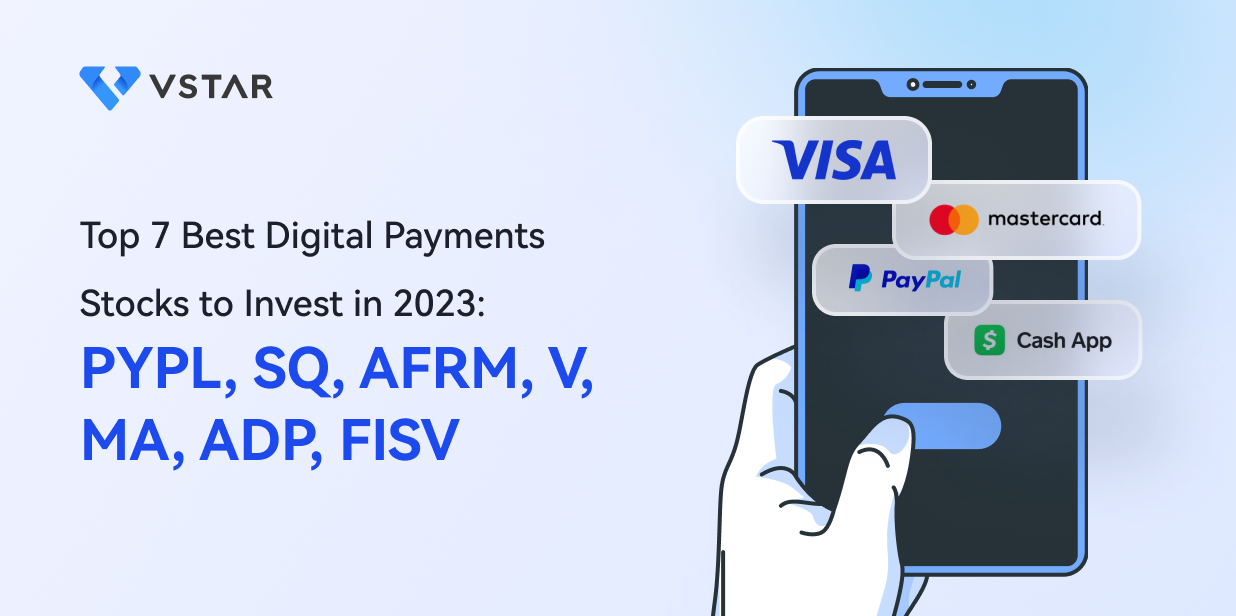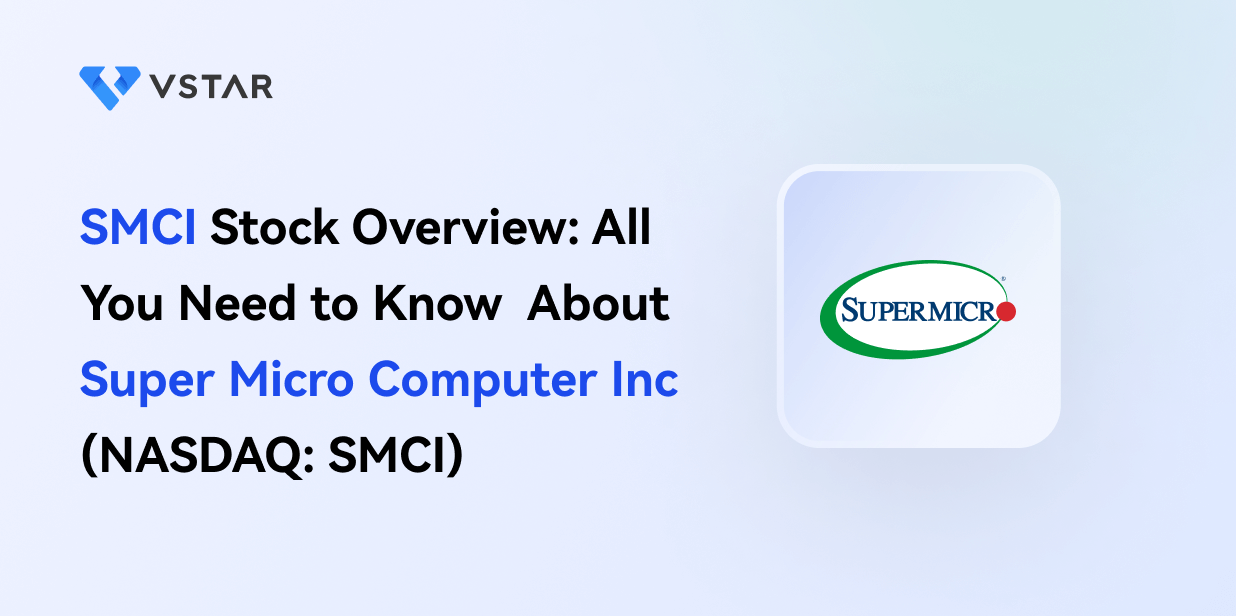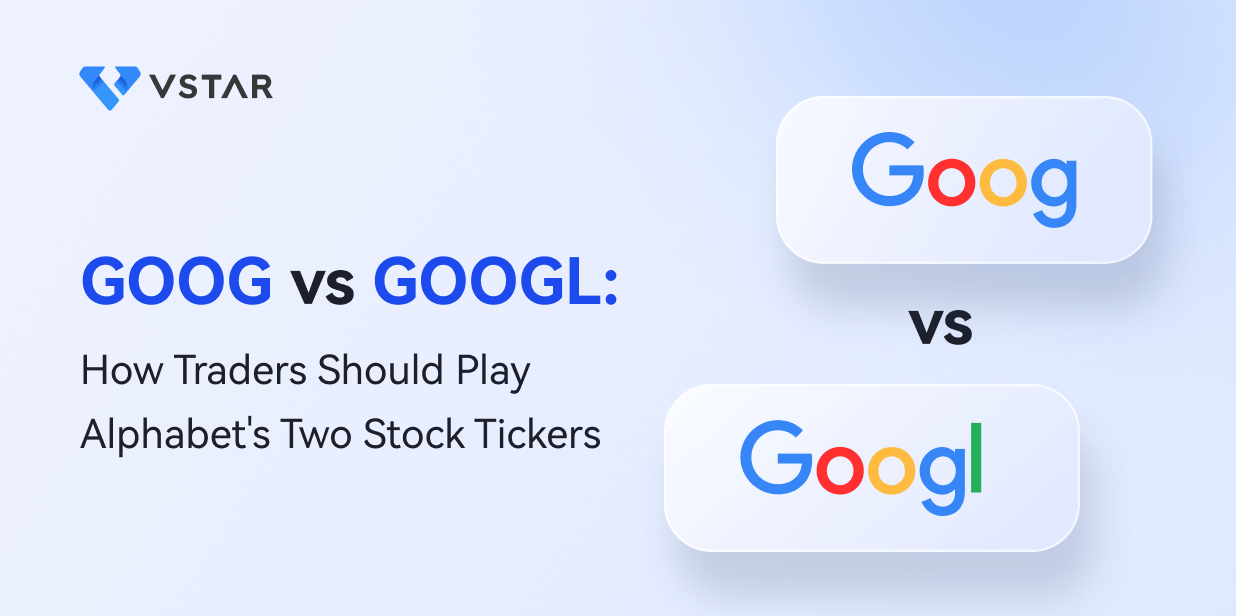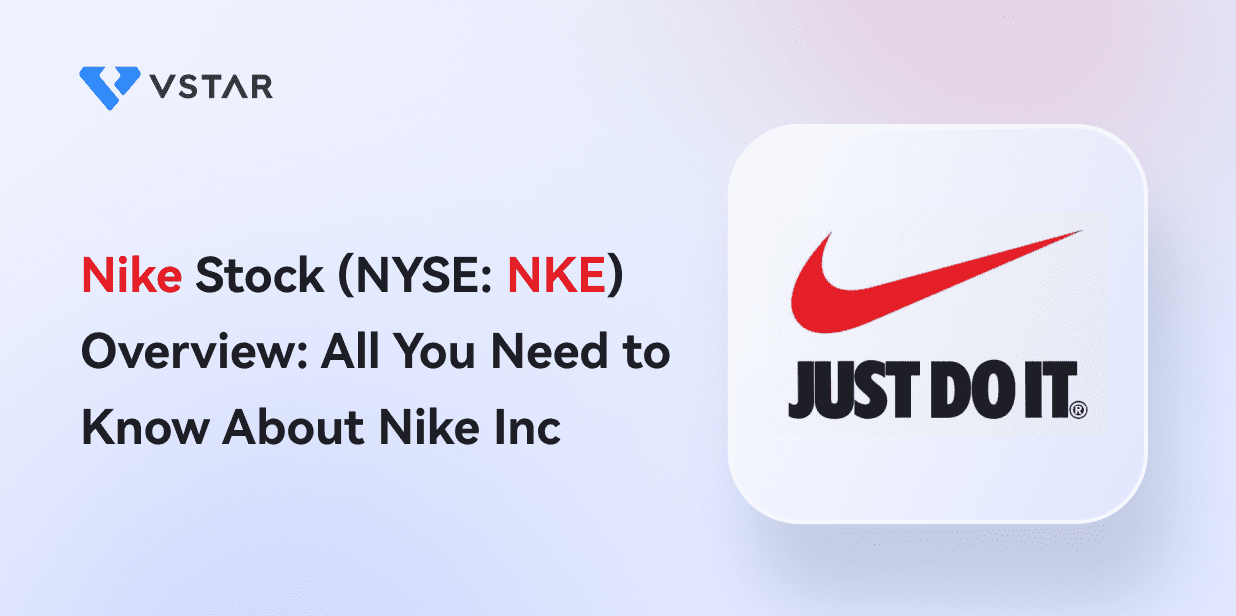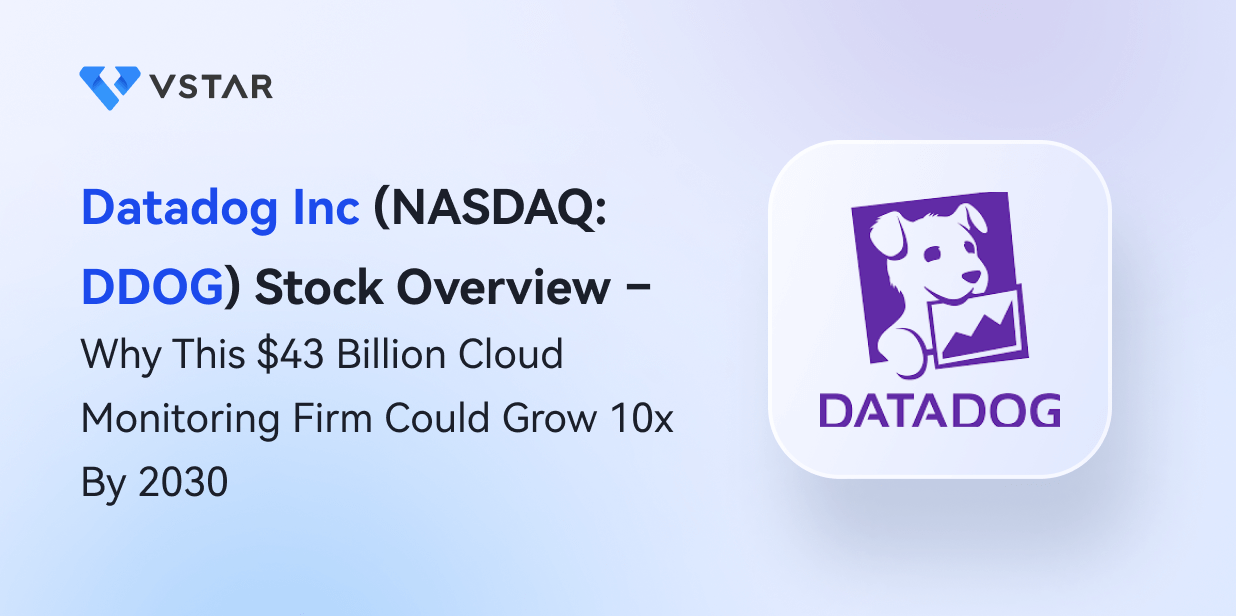The digital payments industry is booming as more people and businesses embrace cashless transactions. They offer convenience, security, and speed for both consumers and merchants. They also enable new business models and opportunities such as e-commerce, peer-to-peer payments, and buy now, pay later solutions. Digital payments stocks are some of the best fintech stocks to invest in as they offer exposure to a fast-growing and innovative sector. And in this article, we will reveal the top 7 best digital payments stocks to invest in in 2023 and how to trade them with VSTAR, a globally regulated trading platform with low fees, deep liquidity, and user-friendly features. Whether you are a beginner or a pro trader, this article is valuable and informative. So let’s get started!
PayPal Holdings Inc. (NASDAQ: PYPL) - The Leader in Global Digital Payments Processing
First up, we have PayPal Holdings Inc., the leader in global digital payments processing. PayPal was spun off from eBay in July 2015 and has become one of the most dominant players in the digital payments industry. PYPL stock has performed well over the years, reaching an all-time high of $308.53 in July 2021. However, it has recently declined to $63.03 as of May 23, 2023, due to increased competition and regulatory challenges.
PayPal makes money by charging fees for completing payment transactions and other payment-related services for merchants and consumers, such as PayPal’s online, in-store, and peer-to-peer payment services. It owns Venmo, a leading mobile app that enables users to move money and shop online. PayPal also offers other products and services, such as PayPal Credit, Xoom, Zettle, and Honey.
PayPal’s revenue and net income grew 24% year-over-year to $7.4 billion and $921 million, respectively, in Q4 2022, despite COVID-19. The company had $15.9 billion in cash and a debt to equity of 58.31% as of Q4 2022. Its operating cash flow increased to $1.2 billion in Q4 2022, but its investing cash flow was negative due to acquisitions. Its financing cash flow was volatile due to share repurchases and debt issuances. PayPal benefited from the rising demand for digital payments and diversified its products and markets.
Investing in PYPL has its pros and cons. On the positive side, PayPal is well-positioned to benefit from the shift to e-commerce and digital wallets, which has accelerated during the pandemic and will continue in the post-pandemic era. PayPal has a large and loyal customer base, strong brand recognition, and a diversified portfolio of products and services. It also has a robust balance sheet, with $10.66 billion in cash and short-term investments as of March 31, 2023. Conversely, PayPal faces intense competition from other digital payment players like Square, Stripe, Affirm, and Apple Pay. It also faces regulatory risks and uncertainties in various markets, such as China, India, and Europe.
Square Inc. (NYSE: SQ) - Empowering Sellers With Payments, Software, Hardware, and More
Square Inc. is a technology company that provides payment and business solutions for sellers and individuals. It got founded in 2009 by Jack Dorsey, the former CEO of Twitter, and Jim McKelvey, a serial entrepreneur. In December 2021, the company announced that it would change its name to Block Inc., reflecting its broader vision of building an ecosystem of financial services and tools for individuals and businesses. SQ stock has been one of the best performers in the fintech space, soaring from around $10 in 2016 to an all-time high of $281.81 in 2021. It has since settled to a price of around $60 in 2023. However, it has also faced volatility and challenges, such as a short-seller report and regulatory scrutiny.
Block makes money by offering its customers a range of products and services. For sellers, it provides merchant services, point-of-sale (POS) systems, marketing, and e-commerce tools that help them accept payments, manage their businesses and grow their sales. For individuals, it offers Cash App, a mobile app that enables stock trading, bitcoin buying, and peer-to-peer money transfers. Cash App has been a significant growth driver for Block, with over 53 million monthly active users and $3.3 billion in revenue in the first quarter of 2023. Block also has other ventures and initiatives, such as Square Capital, Square Hardware, Square Online Store, and Tidal.
Block reported Q1 2023 revenue of $5bn (+26% YoY) and gross profit of $1.7bn (+32% YoY), beating expectations. Cash App revenue was $3.3bn (+33% YoY), and gross profit was $931m (+49% YoY). Bitcoin revenue was $2.2bn (+25% YoY). Block expects FY 2023 adjusted EBITDA of $1.4bn and an operating loss of $115m. The stock rose after the earnings but is down 60% over the past year. Analysts have a target price of $62.50 and a hold rating.
Investing in SQ has its pros and cons. On the positive side, Block is well-positioned to benefit from the fintech innovations and the move to cashless transactions, which have accelerated during the pandemic and should continue. Block has a large and loyal customer base, strong brand recognition, and a diversified portfolio of products and services. It also has a robust balance sheet, with $6.09 billion in cash and short-term investments as of March 31, 2023. On the negative side, Block faces intense competition from other payment and business solutions providers, such as PayPal, Stripe, Shopify, and Intuit. It also faces regulatory risks and uncertainties in various markets, such as cryptocurrency regulations and banking licenses.
Affirm Holdings Inc. (NASDAQ: AFRM)-Pioneer of “Buy Now, Pay Later” Solutions for E-Commerce
Affirm Holdings Inc. is a technology company that provides point-of-sale financing solutions for e-commerce shoppers and merchants. It got founded in 2012 by Max Levchin, a co-founder of PayPal, and went public in January 2021. AFRM stock has been volatile since its debut, reaching a high of $168.52 in November 2021 and a low of $8.91 in December 2022. The stock price stands at $14.53 as at May 23, 2023. It has faced some headwinds from increased competition and regulatory scrutiny in the buy now, pay later (BNPL) space.
Affirm makes money by charging fees to merchants and interest to consumers for its BNPL services. Affirm allows shoppers to split their purchases into multiple payments over time with no hidden fees or late penalties. Affirm also offers a loyalty program called Affirm Rewards, which gives cash back to users for eligible purchases. Affirm has a growing network of merchants that use its BNPL solutions, such as Peloton, Walmart, Shopify, Expedia, and Wayfair. Affirm has over 240,000 merchant partners and over 12.7 million active customers as of May 2023.
Affirm net revenues rose 7.1% year-over-year to $381 million, beating the consensus estimate by 3.9%. Affirm also increased its GMV by 18% year-over-year to $4.6 billion and its active merchants and consumers by 19% and 96%, respectively. The company raised its outlook for fiscal 2023 GMV and revenues, reflecting its strong growth drivers such as virtual card network revenues, interest income, demand and pricing, and consumer re-engagement. However, the company also faced headwinds from declining servicing and merchant network revenues and rising operating costs.
Investing in AFRM has its pros and cons. On the positive side, Affirm is a pioneer and a leader in the BNPL sector, which should snowball in the coming years as more consumers and merchants adopt this alternative payment method. Affirm has strong brand recognition and a loyal customer base that values its transparent and flexible financing options. It also has a strategic partnership with Shopify, which gives it access to millions of online merchants on its platform. Conversely, Affirm faces fierce competition from other BNPL players, such as Klarna, Afterpay, and PayPal. It also faces regulatory risks and uncertainties in various markets, such as consumer protection laws and data privacy regulations.
Visa Inc. (NYSE: V) - Facilitating Digital Payments Across 200 Countries and Territories
Visa Inc. is a global leader in digital payments, operating a network that connects consumers, businesses, banks, and governments in over 200 countries and territories. It got founded in 1958 as BankAmericard, the first general-purpose credit card program, and went public in 2008. V stock has performed consistently over the past decade, rising from around $20 in 2011 to over $230 in 2023. It was also resilient during the COVID-19 pandemic, as more people shifted to online and contactless payments.
Visa makes money by charging fees to its clients for processing transactions on its network. Visa does not issue cards or extend credit to consumers; rather, it enables card issuers and acquirers to offer payment products and services to their customers. Visa also makes money by providing value-added services like security, fraud prevention, data analytics, consulting, and insurance. Visa has been investing in fintech companies and innovations, such as Plaid, a data network that connects financial accounts to apps, and Tap to Phone, a technology that turns smartphones into POS terminals.
Visa reported strong fiscal second quarter 2023 results, beating analysts’ expectations on both revenue and earnings. The company benefited from a recovery in travel spending, as cross-border volume, excluding intra-Europe transactions, grew 31% year-over-year. Visa also saw healthy growth in payments volume (7%) and processed transactions (10%), driven by increased card penetration and contactless adoption. The company returned $4 billion of capital to shareholders through share repurchases and dividends. Visa’s stock has gained more than 10% so far in 2023.
Investing in V has its pros and cons. On the positive side, Visa is a dominant player in the digital payments industry, with a wide reach, a strong brand, and a loyal customer base. Visa benefits from the secular growth of electronic payments and the increasing adoption of digital wallets and e-commerce. It also has a robust balance sheet, with $16.59 billion in cash and short-term investments as of March 31, 2023. On the negative side, Visa faces competition from other payment networks and solutions providers, such as Mastercard, American Express, and PayPal. It also faces regulatory risks and uncertainties in various markets, such as antitrust investigations and data privacy laws.
Mastercard Inc. (NYSE: MA) - A Technology Company in the Payments Industry
Mastercard is one of the world's leading payment technology companies, facilitating digital transactions across 200 countries and territories. Mastercard's stock has been on a steady uptrend for the past ten years, reaching an all-time high of $396.75 in February 2022.
Mastercard got founded in 1966 as Interbank Card Association, an alliance of several regional bankcard associations. It changed its name to Master Charge in 1979 and then to Mastercard in 1990. It went public in 2006 and is traded on the New York Stock Exchange under the symbol MA. As of May 23, 2023, Mastercard’s stock price was $384.53, with a market capitalization of $364.39 billion and a dividend yield of 0.59%.
Mastercard makes money by charging customers, including banks, merchants, and consumers, for using its global payments network and solutions. Mastercard also offers value-added services such as cybersecurity, data analytics, loyalty programs, and consulting to help its customers enhance their digital capabilities and security.
Mastercard has delivered substantial revenue and earnings growth in the last five years. The company’s share price has risen 110% over this period, reflecting its increased transaction volumes and higher fees. The company also achieved compound earnings per share (EPS) growth of 23% per year, higher than the average annual increase in the share price of 16%. The company’s total shareholder return (TSR) was 116% for the last five years, boosted by dividend payments.
Investing in Mastercard has its pros and cons. On the positive side, Mastercard is a stable and resilient company that benefits from the long-term digitization trend and cashless payments. Mastercard also has strong brand recognition, a loyal customer base, and a diversified revenue stream. On the negative side, Mastercard faces intense competition from other payment players such as Visa, PayPal, Square, and Stripe. Mastercard also faces regulatory risks and potential lawsuits related to its fees and practices.
Automatic Data Processing Inc. (NASDAQ: ADP) - Providing Human Resources and Compliance Solutions
Automatic Data Processing, or ADP, is a top provider of outsourced payroll and human resources solutions for businesses and their numerous workers across the globe. ADP was founded in 1949 by Henry Taub as a manual payroll processing service called Automatic Payrolls, Inc. It changed its name to Automatic Data Processing, Inc. in 1961 and went public the same year with 300 clients, 125 employees, and revenues of about $400,000 USD. ADP’s stock has been fairly steady over the past decade, fluctuating between $200 and $300 per share. As of May 24, 2023, ADP’s stock price was $214.52.
ADP makes money by charging fees to its clients for its payroll and HR solutions, which include tax filing, benefits administration, talent management, time tracking, retirement plans, and compliance services. ADP also offers cloud-based platforms and tools that enable its clients to access and manage their payroll and HR data online or via mobile devices.
ADP reported Q3 2023 of $2.52 per share, beating the Zacks Consensus Estimate of $2.42 per share and increasing by 14% from a year ago. The company also posted revenues of $4.93 billion, surpassing the Zacks Consensus Estimate by 0.86% and growing by 9.19% from a year ago. The company has topped consensus estimates for earnings and revenues for four consecutive quarters. However, ADP shares have underperformed the market this year, losing about 11.4% versus the S&P 500’s gain of 6.1%. The company’s earnings outlook and future price movement depend on management’s guidance and market conditions.
Investing in ADP has its pros and cons. On the positive side, ADP is a well-established and reputable company that benefits from the recurring and diversified nature of its revenue streams. ADP also has a loyal customer base, a strong balance sheet, and a generous dividend policy. On the negative side, ADP faces increasing competition from startups and incumbents that offer more innovative and cost-effective payroll and HR solutions. ADP also needs to manage employees across different countries and territories with varying payroll and compliance regulations and leverage technology and data analytics to enhance its digital capabilities and security.
Fiserv Inc. (NYSE: FI) - Enabling Digital Transformation for Banks and Merchants
Fiserv is a leading provider of account processing, payments, e-commerce, and other technology solutions for clients in the financial services industry. Fiserv was founded in 1984 by George Dalton and Leslie Muma, who merged their data processing companies to create a national organization focused on the financial services sector. Fiserv went public in 1986 and was listed on the NASDAQ under the symbol FISV. Now Fiserv trades on the NYSE under the symbol FI. Fiserv’s stock has been performing well over the past year, rising from around $100 to over $120 per share. As of May 24, 2023, Fiserv’s stock price was $116.75, with a market capitalization of $72.07 billion.
Fiserv makes money by charging fees to its clients for its various products and services, which include core banking systems, card issuing and processing, bill payment, digital banking, merchant acquiring, and risk management. Fiserv also enables its clients to offer mobile banking, peer-to-peer payments, and digital commerce solutions to their customers.
Fiserv reported a 10% increase in revenue to $4.55 billion in Q1 2023, driven by growth in its Acceptance, Fintech, and Payments segments. However, its net income dropped 13% to $576 million due to higher expenses. The company raised its organic revenue growth outlook for 2023 to 8-9% but warned of a potential economic slowdown in the second half. Fiserv also announced some changes in its executive leadership team and completed the acquisition of Finxact, a digital banking solutions provider.
Investing in Fiserv has its pros and cons. Let’s see what they are. On the positive side, Fiserv is a well-established and diversified company that benefits from the growing demand for digital and cloud-based solutions in the financial services sector. Fiserv also has a large and loyal customer base, a solid competitive position, and a proven innovation and growth track record. On the negative side, Fiserv faces fierce competition from other fintech players such as Square, Stripe, PayPal, and Intuit. Fiserv also faces regulatory risks and potential integration challenges related to its acquisition of First Data.
How To Invest in Digital Payments Stocks
Digital payments stocks provide technology and services to enable electronic transactions such as online shopping, mobile payments, peer-to-peer transfers, and point-of-sale systems. There are three main ways to invest in digital payments stocks, and here they are:
1. Hold the Share: This means buying and owning the shares of the digital payments companies directly. This gives you the right to receive dividends and vote on corporate matters. However, this also exposes you to the full risk of price fluctuations and requires sizeable initial capital.
2. Option: It means buying or selling a contract that gives you the right, but not the obligation, to buy or sell a certain amount of shares at a specified price and time. This allows you to leverage your investment and profit from different market scenarios. However, this also involves high fees and commissions and can result in significant losses if the market moves against you.
3. CFD: This means trading a contract for difference, an agreement to exchange the difference in the value of a digital payments stock between the time you open and close the trade. This allows you to trade on margin and benefit from rising and falling markets. However, this also involves high risks and costs and can magnify your losses and gains.
One of the best platforms to trade digital payments stocks CFD is VSTAR, a global regulated trading platform that offers low fees, deep liquidity, and user-friendly features and lets you trade digital payments stocks CFD and over 1000 other markets. You can start with a minimum deposit of $50 and enjoy negative balance protection and a $100,000 demo account. VSTAR gets regulated by CySEC and is a member of the Cyprus Investor Compensation Fund.
To start trading digital payments stocks CFD with VSTAR, follow these simple steps:
● Download the VSTAR app from Google Play or App Store and register for an account.
● Deposit and choose your preferred payment method (VISA MASTERCARD, International Bank Wire, Tether Skrill Netteller SticPay Perfect Money).
● Select the digital payment stock you want to trade from the list of available instruments.
● Based on your market analysis, decide whether you want to buy (go short) or sell the stock.
● Enter the amount you want to trade, set your stop loss, and take profit levels.
● Confirm your trade and monitor your position until you close it or it reaches your exit point. Sounds easy enough, right?
Trading digital payments stocks CFD can be a rewarding but risky activity. Make sure you understand the risks involved and use proper risk management techniques. Happy trading!
Conclusion
This article reviewed the top 7 digital payment stocks in 2023. These companies provide technology and services for electronic transactions across various platforms and channels. They have strong growth potential, competitive advantages, and attractive valuations.
The digital payments industry is one of the most dynamic and exciting sectors in the fintech space. The Covid-19 pandemic has accelerated the shift to digital payments and created new opportunities for the industry players. You can invest in digital payments stocks directly by holding the shares or indirectly by using options or CFDs.
One of the best ways to invest in digital payments stocks is by trading CFDs with VSTAR, a globally regulated trading platform with low fees, deep liquidity, and user-friendly features. Trading CFDs can be a rewarding but risky activity. Make sure you understand the risks involved and use proper risk management techniques. Start your digital payments stocks investment journey with VSTAR now and enjoy the benefits of this exciting sector.
